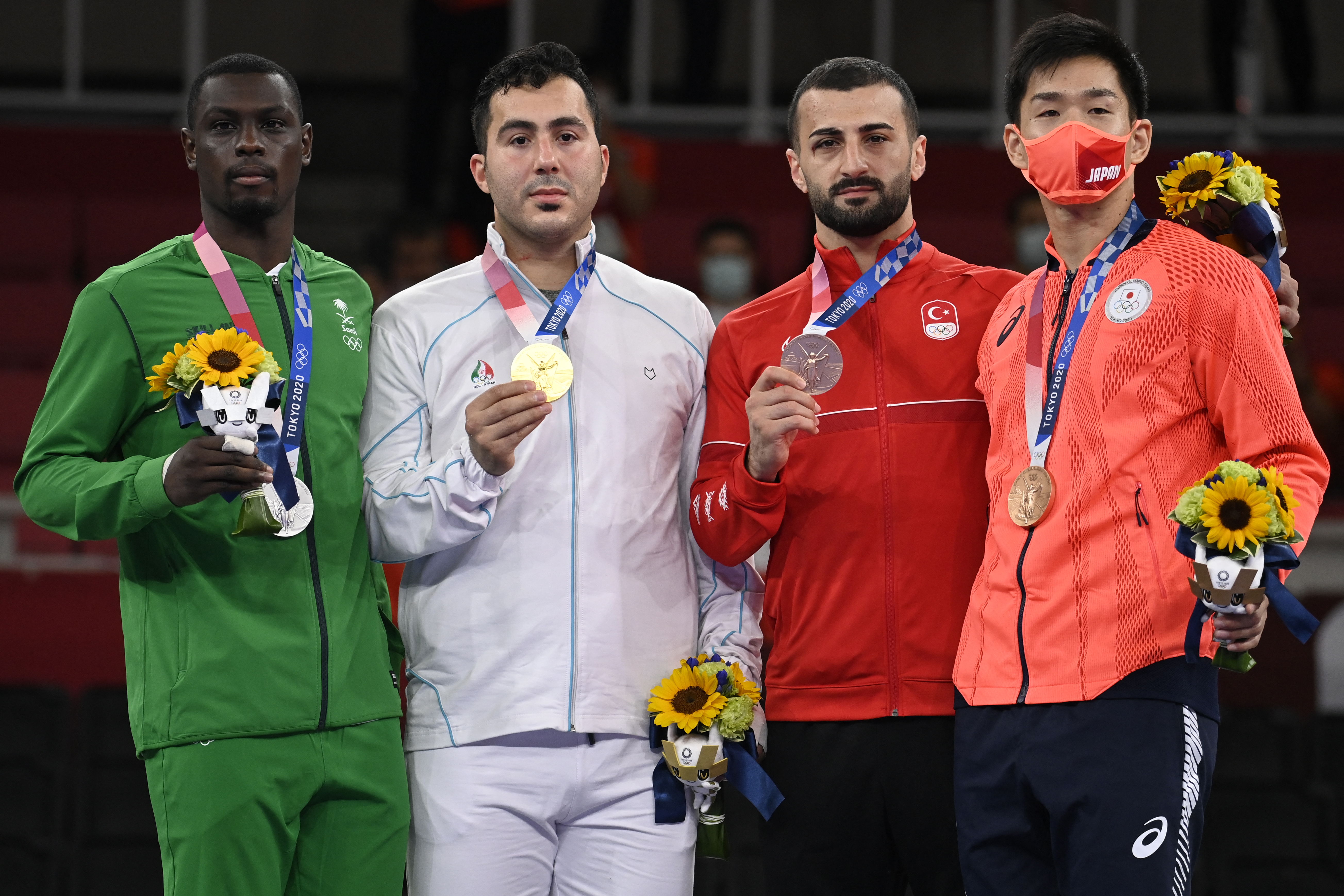Why some Olympic sports award four medals instead of three

Even though Belgium's Quentin Mahauden lost the karate semi-finals at the European Games on Friday, he still secured a bronze medal. Why does karate, like several other Olympic sports, award four medals instead of three?
The main reason is fairness. The "repechage" format - French for "rescuing" or "fishing out" - is designed to give athletes who lose against future finalists a chance to win a medal. Different kinds of repechage systems exist that differ from sport to sport.
Karate has two disciplines. In kumite - direct fights between two athletes - both losing semi-finalists are given a bronze medal. In kata - where athletes are awarded points for the correctness and power of their moves - the six best performers are divided into two groups. Group winners proceed to the gold medal match while the others fight for two bronze medals.
Not just karate
While karate will not appear at the 2024 Olympics, other Olympic martial arts also use this format. In taekwondo and wrestling, the losing semi-finalists face the winner of a duel between the two athletes who lost to the eventual finalist in the previous rounds. In judo, meanwhile, the losing quarter-finalists are pitted against each other. The two winners each fight a losing semi-finalist for two bronze medals.
Fairness is not the only reason behind the four-medal format. Since its introduction in the Olympics in 1904, a traditional bronze-medal match was organised. But that rule was changed in 1950 due to potential health risks. The organisers thought the break between the semi-final and the third-place match was too short for adequate recovery and decided to award two bronze medals instead.
Karate medal winners at the 2020 Olympics in Tokyo, Japan. © ALEXANDER NEMENOV / AFP